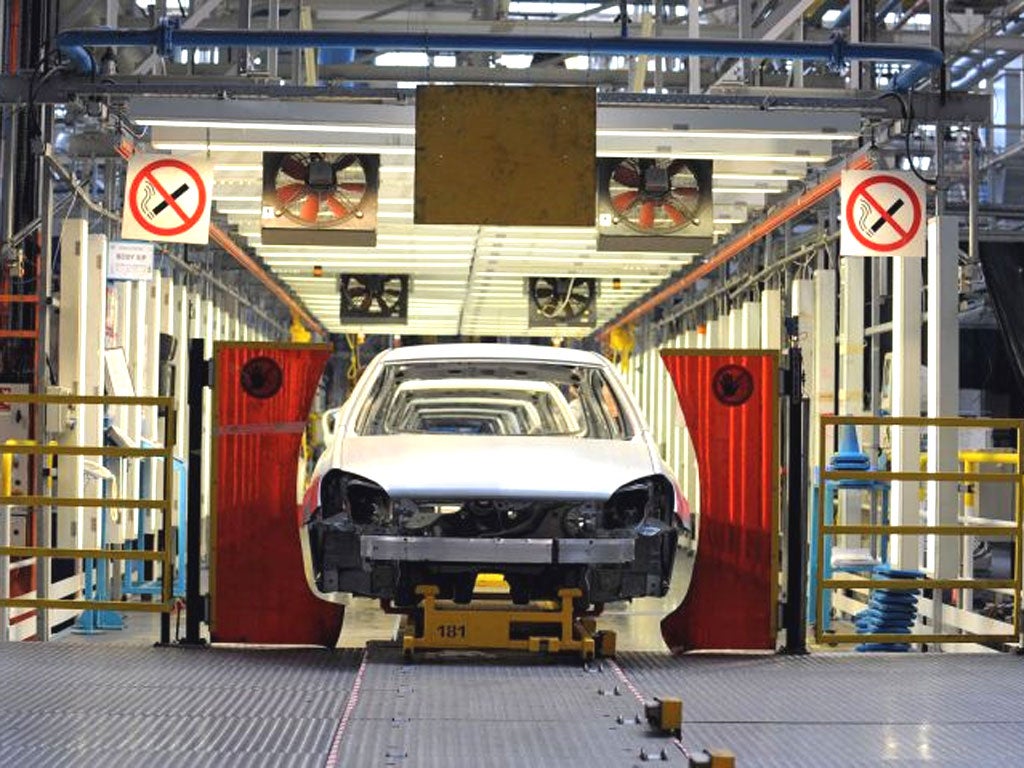Levelling up? Britain’s car-making hubs will need government help after Brexit
Britain’s car exports to the EU look set to face additional tariffs even if a trade deal is secured. It’s a challenge an industry facing significant headwinds may not be able to overcome, writes James Moore


Is the UK automative industry doomed? If it isn’t it’s in grave danger.
Last week Lord Frost, who has been leading the Brexit trade negotiations, coughed up to the chilly future it’s facing.
The government had asked for parts brought in from Japan, South Korea or Turkey to be treated as British. This is so the cars made with them could also qualify as British under the strict rules-of-origin requirements they will have to meet to be exported to Europe tariff free under a UK/EU free trade agreement. If one is struck, which is, obviously, still in doubt.
Not being terribly keen on the idea of having an assembly hub for cheap parts produced elsewhere on its doorstep, and understandably lacking trust in the UK government’s intentions, the EU declined.
This means that vehicles exported from this country to the EU, which are typically 45 per cent UK-made under the rules, are going to face additional tariffs in addition to the lengthy delays at Kent customs that they don’t currently face but will from 1 January.
Now, the automative industry is in the throes of an important, and very necessary, transition.
Various governments, including Britain’s, have made pledges and/or commitments to take petrol-driven vehicles off the road because of the climate emergency.
These are needed. The damage to the UK from Brexit, combined with that from the pandemic, pales in comparison to what’s coming if the world fails to get a grip on the climate issue.
But this means the traditional automative industry is having to sink vast sums of money into the production of cleaner, greener, electrically powered vehicles.
As they upgrade their models, and look at where to site the new, or upgraded factories, where they are going to be produced, they have a choice.
There’s the UK, which has in its favour a proven ability to make cars efficiently and cost-effectively. The mainly foreign-owned plants here attract favourable reviews on that front.
The problem is those tariffs, and the new customs arrangements, are going to impose significant extra burdens that erode the advantages the UK current has.
EU alternatives look much more attractive by comparison. Brexiteers like to snarl about “Brussels bureaucrats”, but those bureaucrats oversee a huge internal market, ten times the size of the UK’s, featuring frictionless, customs-free movement, harmonised rules, and the ability to import parts from the EU’s partners (like, say, Japan) if that’s needed without any tariffs because of the free trade agreement(s) it has with them.
Absent a miracle in which Stakhanovite British workers agree to work twice the hours for half the pay, the EU wins hands down.
The pandemic, which is further heaping pressure on an industry that has struggled for profitability, only underlines the point.
Theresa May’s Brexit agreement sought to address this issue, but Boris Johnson and his chums torpedoed that before signing up to a much inferior one he didn’t bother to read.
It should be said that neither of them cared to address services, which is the biggest part of the UK economy by far. That goes without saying.
What’s the end game here? Probably more closures on top of those we have already seen (eg, Swindon).
The industry’s hubs around Britain are going to be in need of significant government assistance to overcome this if, far from getting levelled up, they’re to avoid getting dragged into a hole.
One would hope chancellor Rishi Sunak has found time to think about that because, while he’s made nosies about bringing the UK’s budget deficit under control, the absolute last thing they’re going to need need is yet more austerity.




Join our commenting forum
Join thought-provoking conversations, follow other Independent readers and see their replies
Comments